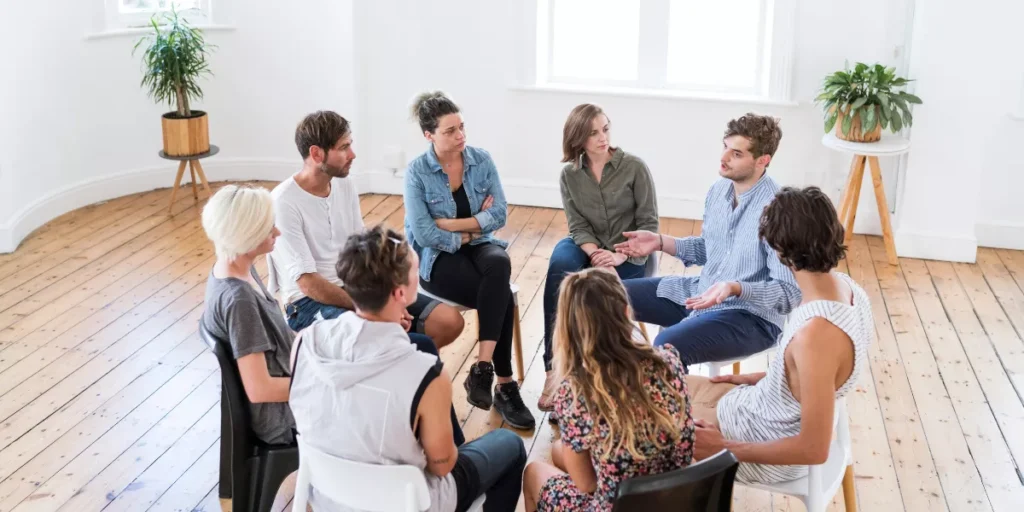
In considering the benefits of group therapy, you might find yourself intrigued by the profound impact it can have on individuals. The dynamics of a group setting offer unique advantages that can lead to significant personal growth and well-being. By exploring the facets of social support, self-awareness, peer interaction, and skill-building within a group therapy context, you may uncover a wealth of benefits that could positively influence your journey towards mental and emotional wellness.
Increased Social Support
When participating in group therapy, individuals often experience an increase in social support from their fellow group members. Sharing your experiences, thoughts, and emotions with others in a similar situation can create a sense of belonging and understanding. Through group discussions and interactions, you may find that you aren’t alone in your struggles and that others can relate to what you’re going through.
Being part of a supportive group can provide you with a network of people who genuinely care about your well-being. These connections can help boost your self-esteem and confidence as you receive encouragement and validation from others. The camaraderie that develops within a therapy group can offer a safe space for you to express yourself without fear of judgment.
Moreover, having a support system in place can help you cope better with challenges outside of the therapy sessions. Knowing that you have a group of individuals rooting for you and offering guidance can be a source of strength during difficult times. Embracing the social support that group therapy provides can lead to a more positive outlook on life and an increased sense of resilience.
Enhanced Self-Awareness
Developing a deeper understanding of your thoughts and emotions is a key aspect of experiencing enhanced self-awareness in group therapy. Through group therapy, you have the opportunity to explore your inner world in a supportive environment surrounded by individuals facing similar challenges. Sharing your experiences and listening to others can provide you with new perspectives that help you gain insight into your own behaviors and patterns. As you engage in discussions and activities within the group, you may start to recognize recurring themes or triggers that influence your thoughts and actions.
Moreover, group therapy offers a mirror for you to see how others perceive you, which can lead to a more accurate self-assessment. By receiving feedback and reflections from group members and the therapist, you can become more aware of aspects of yourself that you may not have noticed before. This process of self-reflection and introspection can lead to personal growth and a deeper understanding of your own identity and values.
Peer Interaction for Personal Growth
Engaging with peers in group therapy fosters personal growth through meaningful interactions and shared experiences. By participating in group discussions and activities, you have the opportunity to gain different perspectives on your own challenges and struggles. Interacting with others who may have similar experiences can help you feel understood and less alone in your journey.
Through peer interaction, you can also learn new coping strategies and communication skills by observing how others navigate similar situations. Sharing your own experiences and listening to those of others can provide valuable insights and promote self-reflection. Building connections with peers in a therapeutic setting can boost your self-esteem and confidence as you receive support and encouragement from others.
Furthermore, peer interactions can offer a sense of community and belonging, which are essential for personal growth and emotional well-being. By forming connections with others in group therapy, you can create a supportive network that helps you navigate challenges outside of the therapy sessions. Overall, engaging with peers in group therapy can be a powerful catalyst for your personal growth and development.
Skill Building Through Feedback and Sharing
Joining a group therapy session allows you to enhance your skills through receiving feedback and sharing experiences with others. In this supportive environment, you have the opportunity to practice giving and receiving constructive criticism. By actively engaging in providing feedback to others, you can develop your communication and interpersonal skills. Additionally, receiving feedback from different group members can offer diverse perspectives that you may not have considered, helping you broaden your understanding and approach to various situations.
Sharing your own experiences in a group therapy setting can also be beneficial for skill building. As you articulate your thoughts and feelings to others, you can improve your self-expression and emotional regulation abilities. Moreover, listening to the experiences of fellow group members can provide you with valuable insights and coping strategies that you can apply to your own life challenges. Through this reciprocal sharing and feedback process, you can cultivate a range of skills that contribute to your personal growth and well-being.
Meditation Benches














